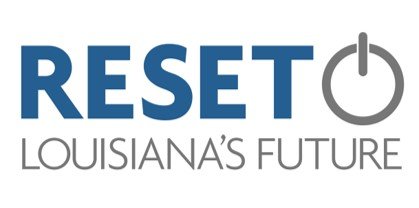WILL SENTELL | Published Apr 22, 2019 at 4:00 am | Updated Apr 22, 2019 at 2:00 pm
Just two weeks into the legislative session, a split is developing between public schools advocates and those who contend early childhood education and care is an urgent need.
Both sides are aiming for a $39 million hike in state aid in a $30 billion state operating budget.
Gov. John Bel Edwards, superintendents, school board members, principals, charter school advocates and teachers unions are behind the push for an increase in public school funding.
Backers of new dollars for early childhood education, including state Superintendent of Education John White, agree that more money for public schools is long overdue.
But they also say 5,500 low-income families are desperate for state assistance for their children while they work or attend school.
"What I can't fathom is why we would leave a whole system, especially one that has people on a waiting list waiting to work and send their kids to child care, completely out of the picture," White told the editorial board of The Advocate last week.
Officials said quality care from birth to age 3 provides stimulation for children during a critical time of brain development, and lessens chances that children will need special education, have to repeat grades or eventually drop out of school.
"It is an essential part of the education system," White said.
Rep. Gary Carter, D-New Orleans, is a member of the key money panel — the House Appropriations Committee.
"It seems like a Sophie's choice," said Carter, meaning an untenable selection between two worthy causes.
"It is either appropriate for our schools or early childhood education," he said.
Melanie Bronfin, of Metairie, is arguably the fiercest advocate for early childhood education in the State Capitol.
"I am grateful that, for the first time since I started, when I walk in, people are talking about the importance of early childhood education and the need to fund it," said Bronfin, director of the Louisiana Policy Institute for Children.
Like others in the fray, she is uncomfortable with the idea that public schools and early childhood advocates are somehow rivals.
"I am sad that any education is pitted against another education," Bronfin said.
Public schools have won only a single increase in the past decade like the $39 million boost pushed by the governor.
Backers note that the state's 69 school districts are facing rising health insurance and retirement costs.
Even with an increase, roughly 25 cents of every new dollar for schools is earmarked for former educators.
Meanwhile, only 15% of low-income families with children under the age of 4 can access public dollars for care and education, according to Bronfin's group.
Costs can total $7,000 per year.
The federal government provides nearly 90% of the $468.3 million spent on early childhood education in Louisiana.
Up to $40 million of that assistance is set to expire in the next 15 months.
Even now, families have to come up with most of the costs for care because state reimbursement rates are so low, which is why they are under scrutiny by federal officials.
The rallying cause for advocates, the Child Care Assistance Program, aided 40,000 families in 2009.
Now only 15,000 are served.
Another 3,500 families are on a waiting list, and yet another 2,000 are authorized and not funded.
A $40 million injection from the Legislature would wipe out the waiting list and narrow the gap between what families are charged and how much they are reimbursed by the state, officials said.
It would also replace a less pressing $8.8 million federal grant expiring this year for 800 4-year-olds. About 90 percent in that age group are already covered by programs for low-income families.
House Republican leaders, who have long quarreled with Edwards on how much the state has to spend, are making early childhood education a priority.
"I am hearing there will be something," said House Education Committee Chairwoman Nancy Landry, R-Lafayette. "I haven't heard any exact figure."
Landry's committee, at her urging, voted 9-5 last week along party lines to return the Edwards-backed public school funding plan to the state Board of Elementary and Secondary Education, and for BESE to remove the $39 million boost for public schools.
State Rep. Rick Edmonds, R-Baton Rouge, a member of the committee, said students are collecting near the national average for public school spending -- $12,153 per year.
Edmonds said without a change in public school spending plans, early childhood education will end up with "not much."
Landry said returning the request to BESE was aimed at ensuring funding for $1,000 teacher pay raises, a $101 million per year commitment that enjoys bipartisan support.
She disputed the notion that public schools are being set off against early childhood education proponents.
"Everyone is pitted against everyone," Landry said. "Everybody is scrapping for the same pot of money."
Whether BESE will revise its request is unclear.
Belinda Davis, an associate professor of political science at LSU and public schools advocate, told Landry's committee last week it is unfair to pit two wings of Louisiana's education system against each other. "Your job is to figure out how to fund both," Davis said.
Davis did a study for the state Department of Education on state subsidies for early childhood care versus market rates.
She said later that lawmakers face a dilemma today because, in the past, they declined to take steps that would have ensured adequate funding for both public schools and early care.
"It is not a Sophie's choice," Davis said.
"They are making the decision to choose one or the other," she said. "They are either going to choose my 10-year-old or my neighbor's 4-year old," Davis said.
